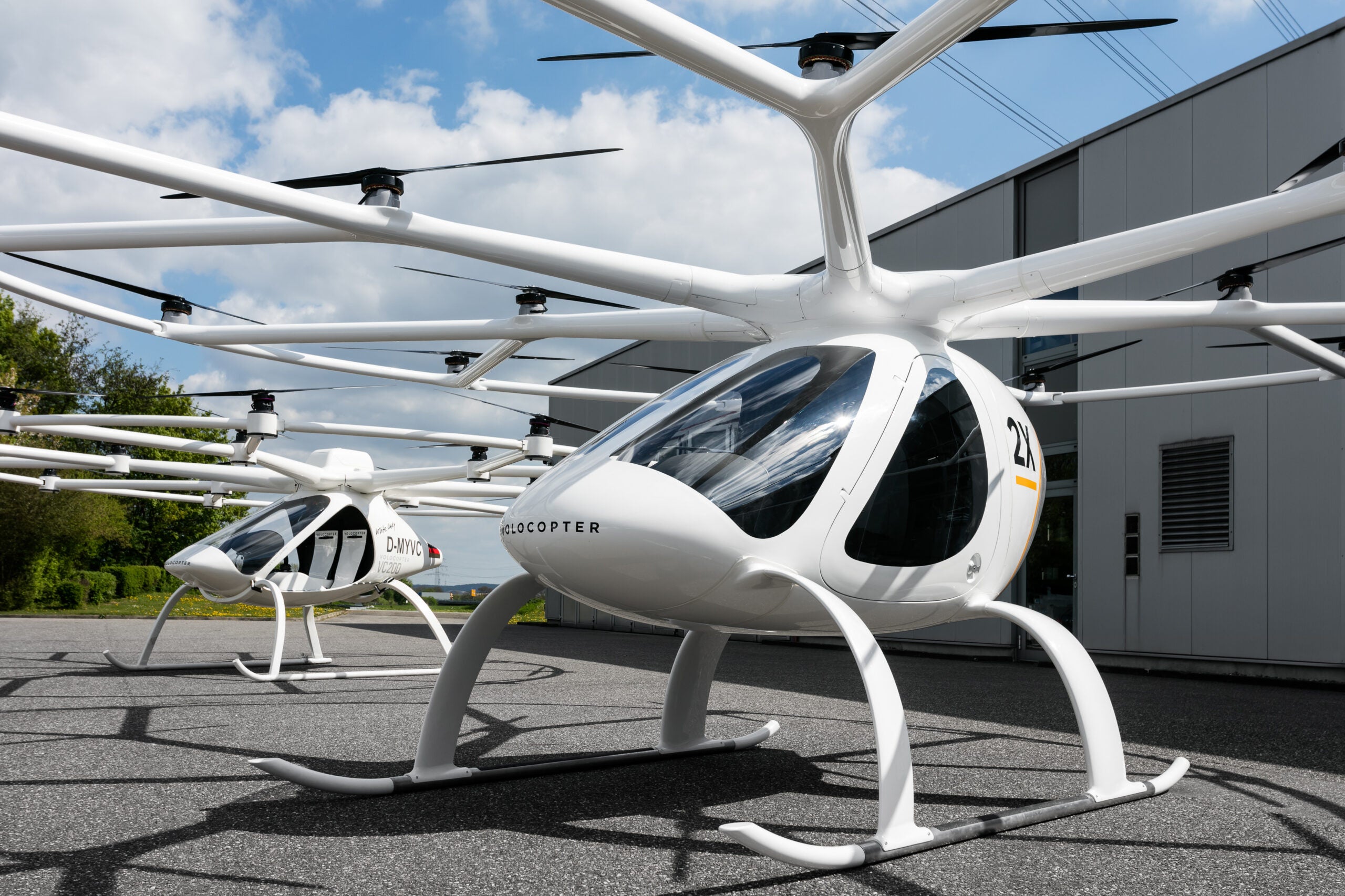
Aspiring air-taxi maker and operator Volocopter has moved a step closer to commercial launch with a €200m Series D funding round.
The German urban air mobility (UAM) startup has now raised €322m and hopes to launch its first commercial air taxi routes within the next two years.
Volocopter is one of several startups betting on the air taxi industry taking off in the near future, competing with ventures such as Lilium and EHang to be the first to commercial launch.
There has been considerable interest in air taxis in recent years, with aerospace conglomerate Honeywell launching a dedicated air taxi business unit last year, and Joby Aviation going public through a deal with Linkedin and Zynga.
There has been speculation that the Covid-19 pandemic may help accelerate the rollout of urban air mobility, with a hesitancy to return to public transport having the potential to boost public acceptance of alternative technologies. That said, Volocopter’s planned offering could be seen as lying somewhere between public transport and taxis: the company’s vision would not see its aircraft picking up and setting down passengers on city streets, but at dedicated “Voloports” established at suitable locations across a city.
Volocopter hopes that its new funding will help bring VoloCity, its battery-powered air taxi, to certification. Investors including funds managed by BlackRock, Atlantia, Avala Capital, Continental AG, Jericho Capital, NTT and Tokyo Century participated in the funding round, joining existing investors.
How well do you really know your competitors?
Access the most comprehensive Company Profiles on the market, powered by GlobalData. Save hours of research. Gain competitive edge.

Thank you!
Your download email will arrive shortly
Not ready to buy yet? Download a free sample
We are confident about the unique quality of our Company Profiles. However, we want you to make the most beneficial decision for your business, so we offer a free sample that you can download by submitting the below form
By GlobalDataThe company believes that it has largely solved the issue of noise, one of the main obstacles to deployment of urban air transport. In 2019 it released a whitepaper which stated that a Volocopter produces a noise level of 65 decibels at a distance of 75m, and 78 decibels at a distance of 30m.
The US Centers for Disease Control (CDC) say that noise above 70 decibels “over a prolonged period of time may start to damage your hearing” and “you may feel annoyed by the noise”. The CDCs add that above 80 decibels “you may feel very annoyed” and “damage to hearing is possible after two hours”. However Volocopter points out that other city noises such as busy traffic can easily top 80 decibels.
Volocopter was founded in 2011, the year it carried out its first manned test flight. Over the past decade it has completed flights in Helsinki, Stuttgart and Dubai. In December it announced plans to launch air taxi services in Singapore as well as routes in Paris.
“Volocopter is ahead of the curve in the UAM industry, and we have the achievements to prove it,” said Florian Reuter, CEO of Volocopter. “Our VoloCity is the fifth generation of Volocopter aircraft and has a strong path to being the first certified electric air taxi for cities. Volocopter already has the extensive partnerships necessary to set up the UAM ecosystem for launching both our company and the industry into commercial operations.”
Read More: Honeywell partners with Vertical Aerospace to make urban air mobility vehicle a reality.







